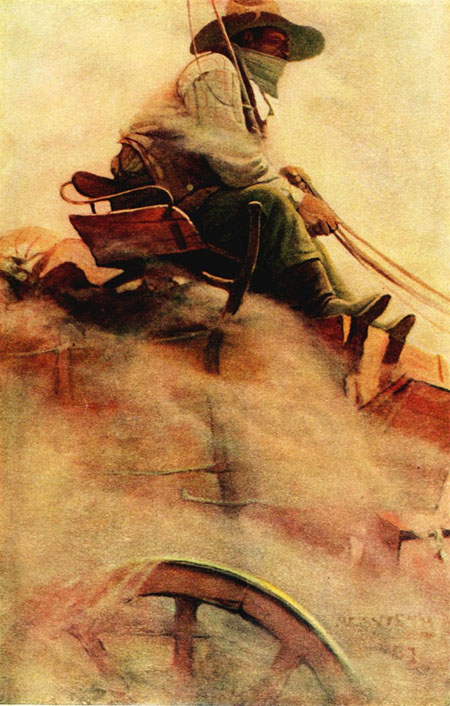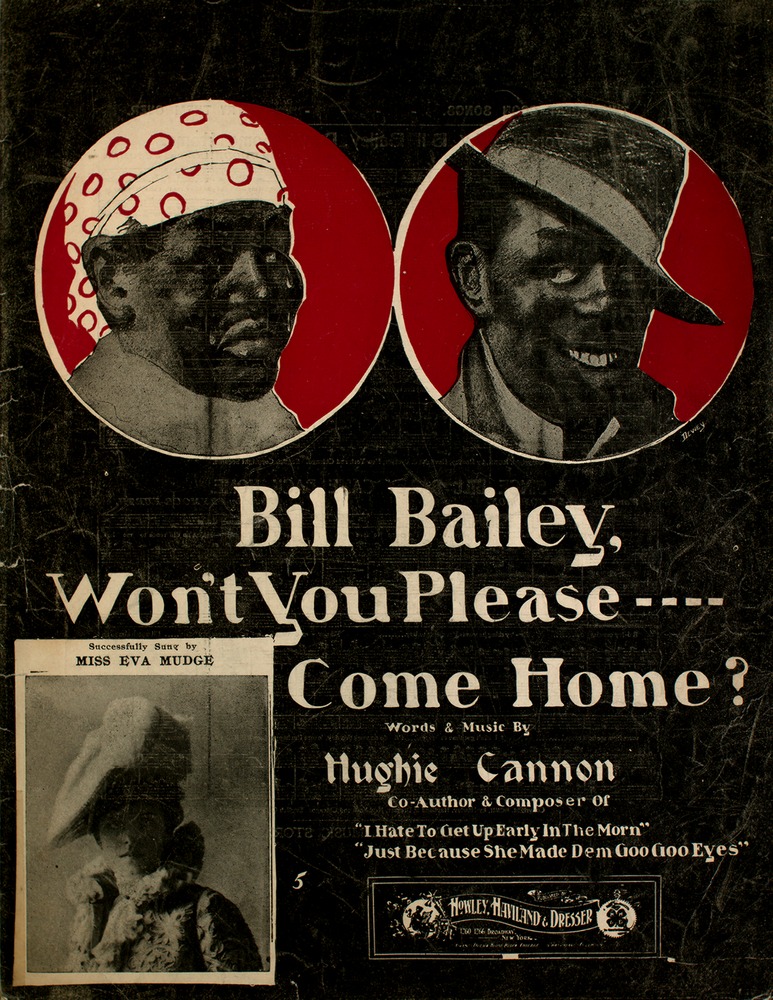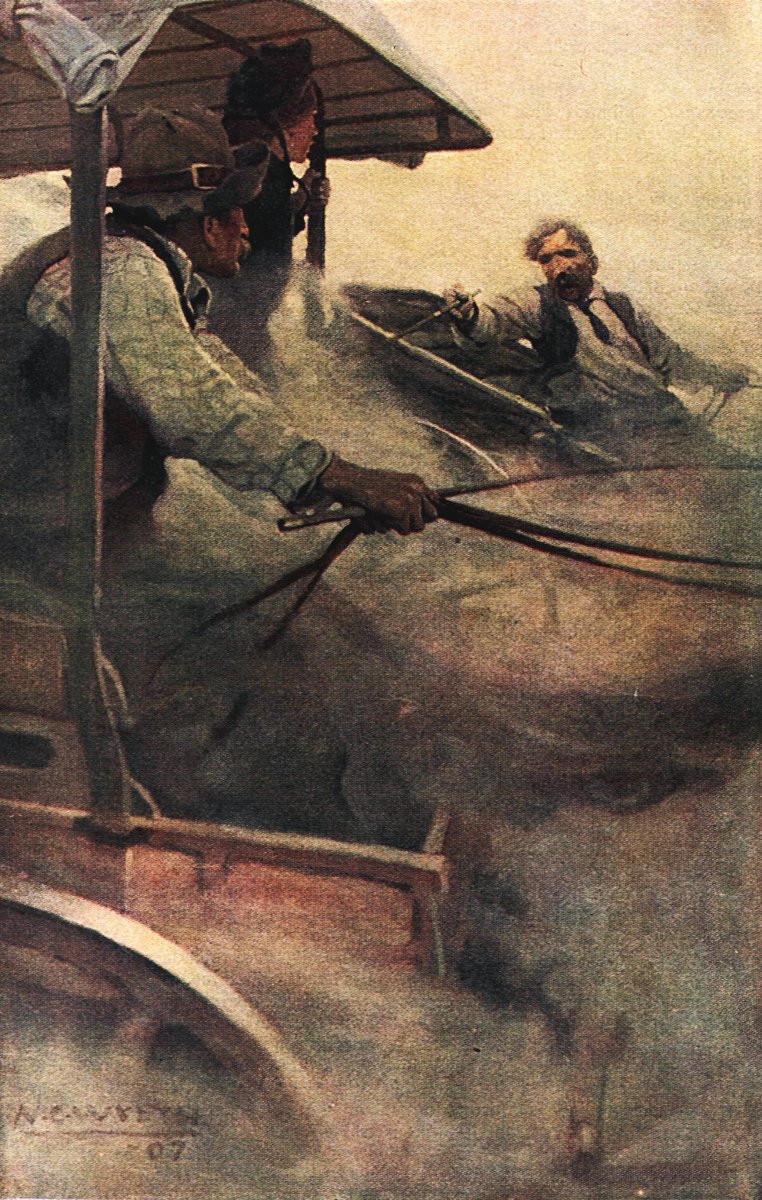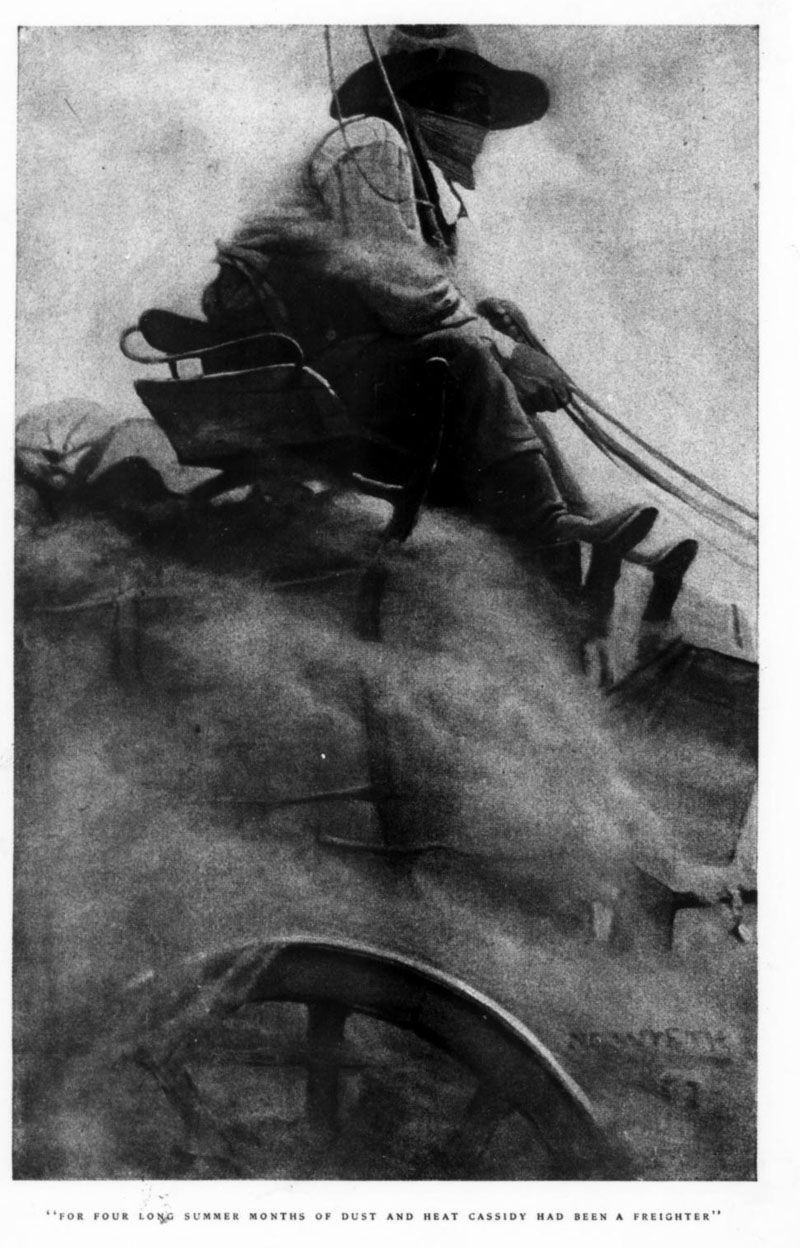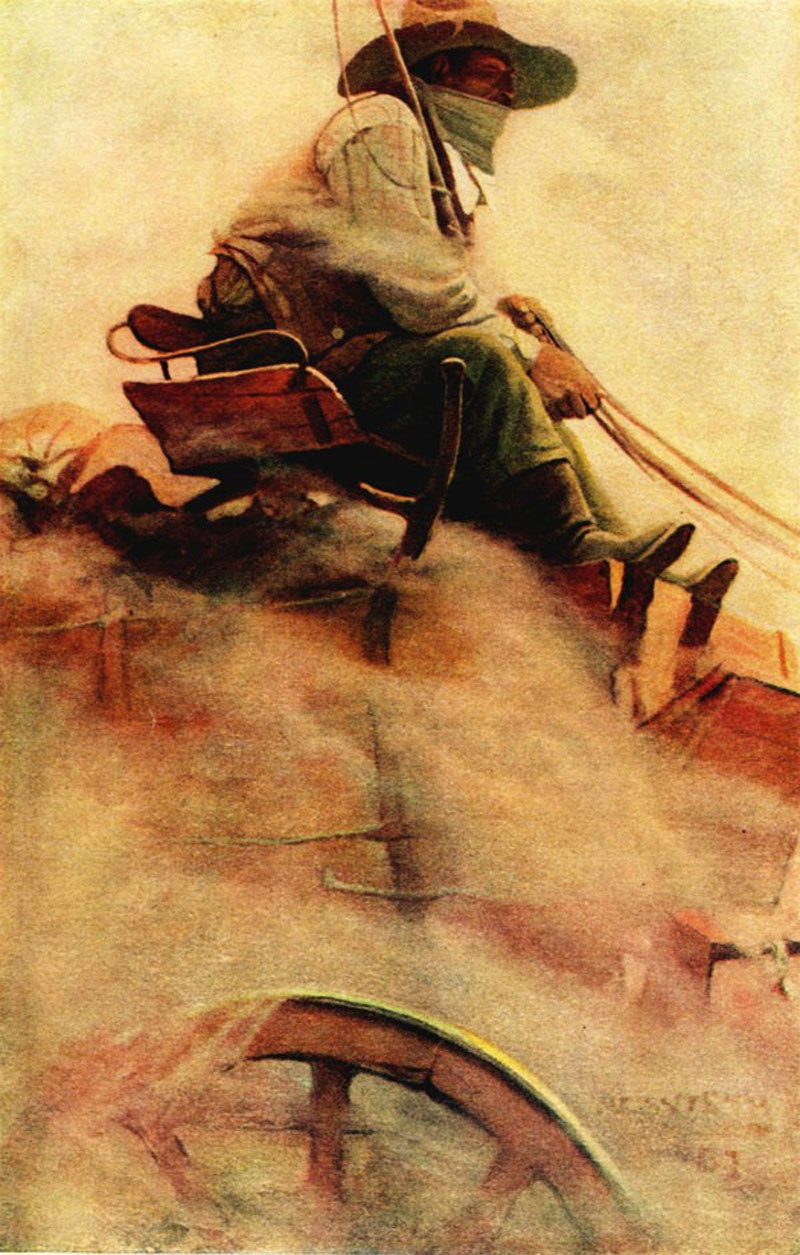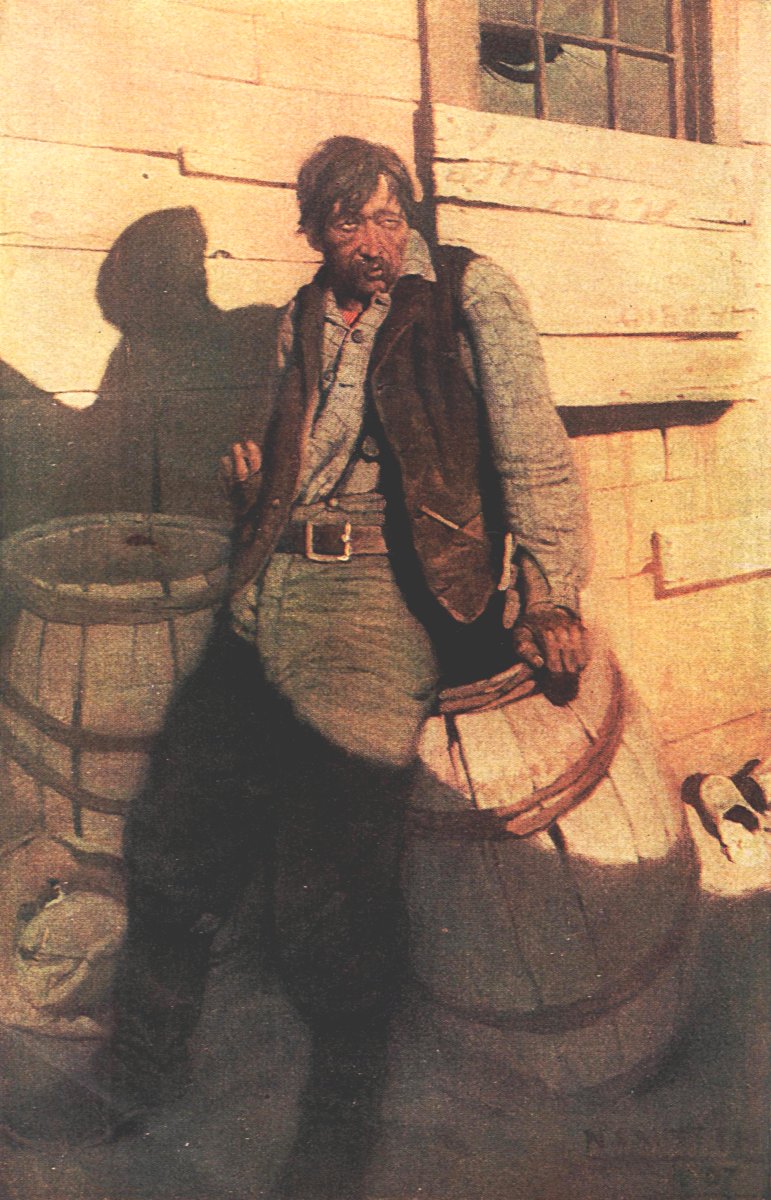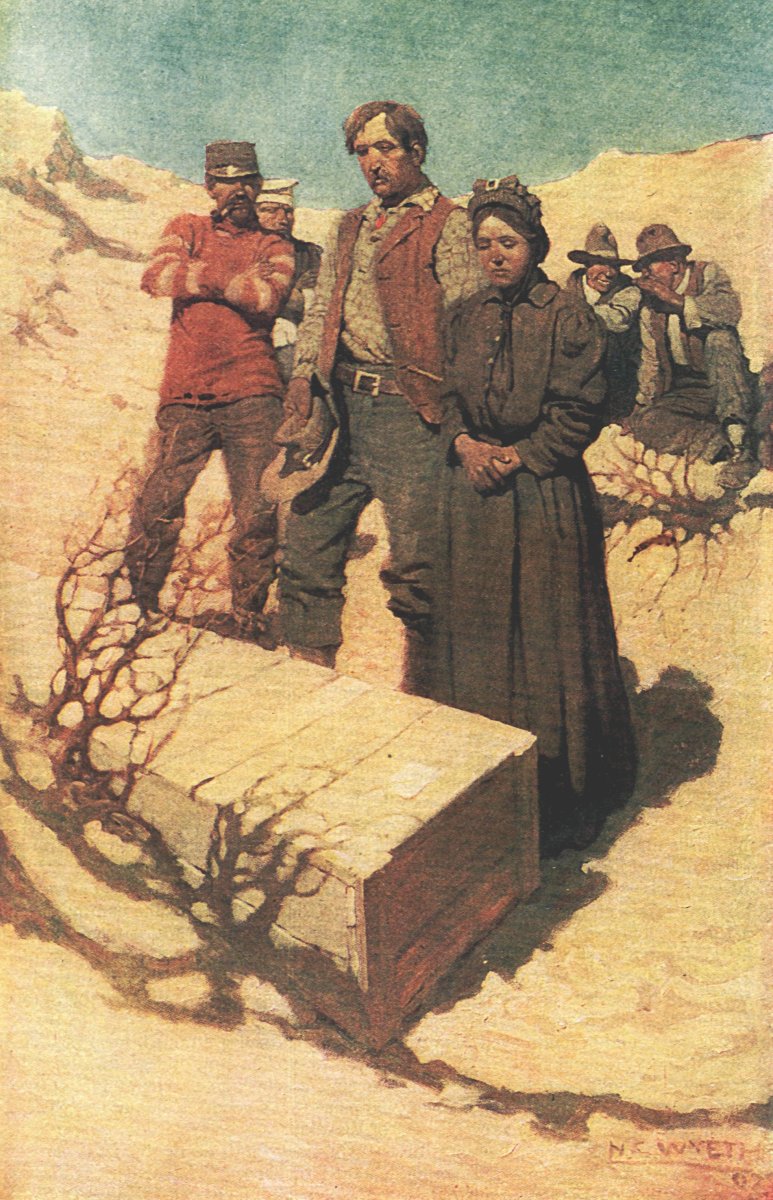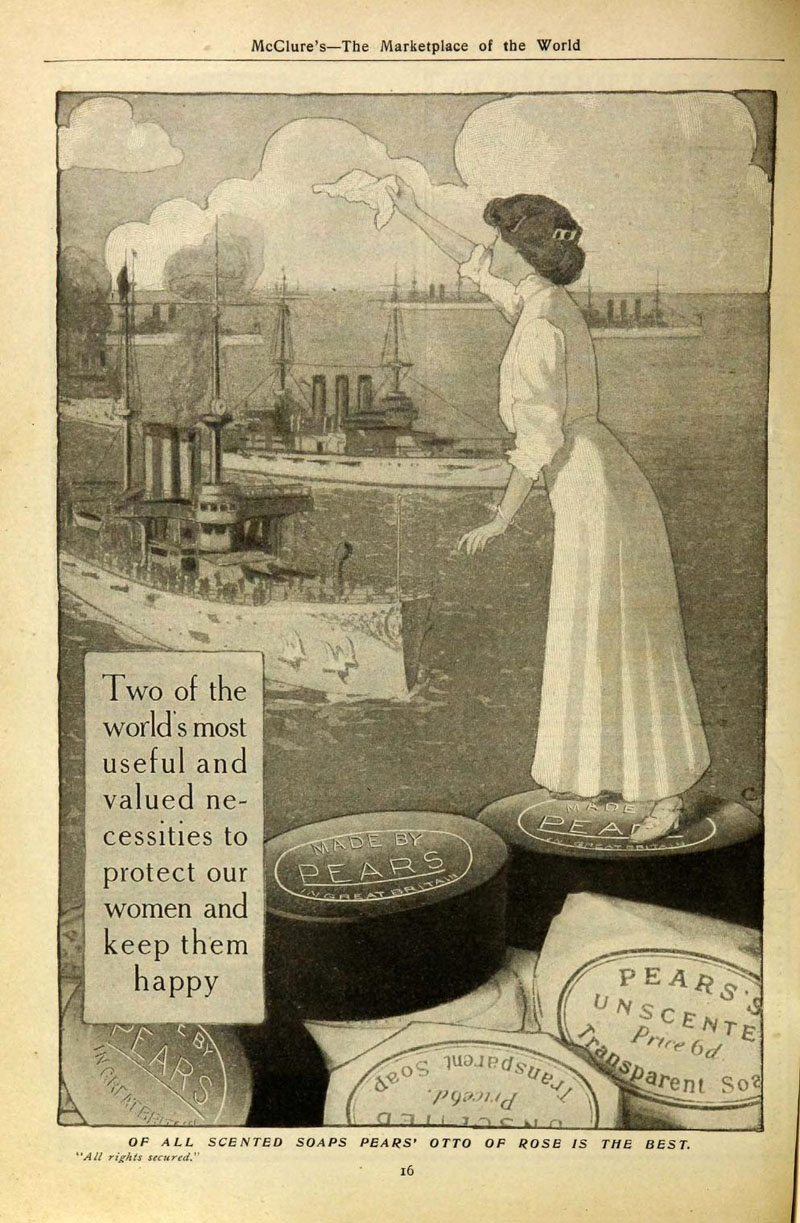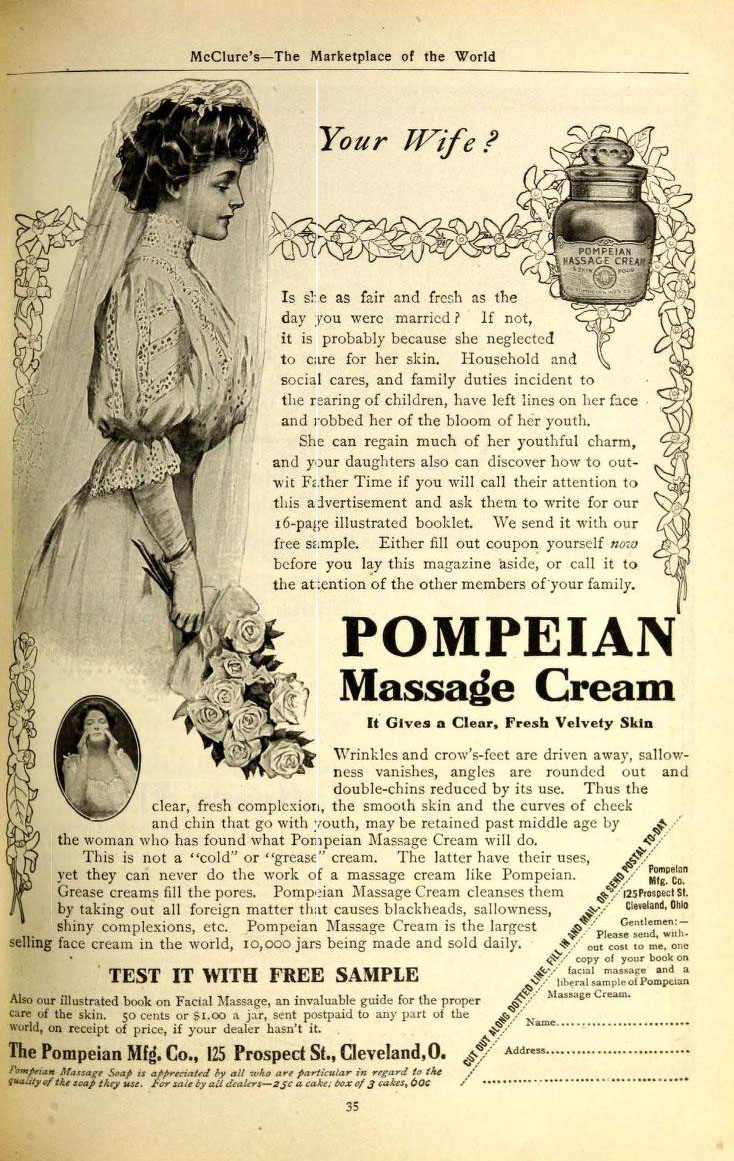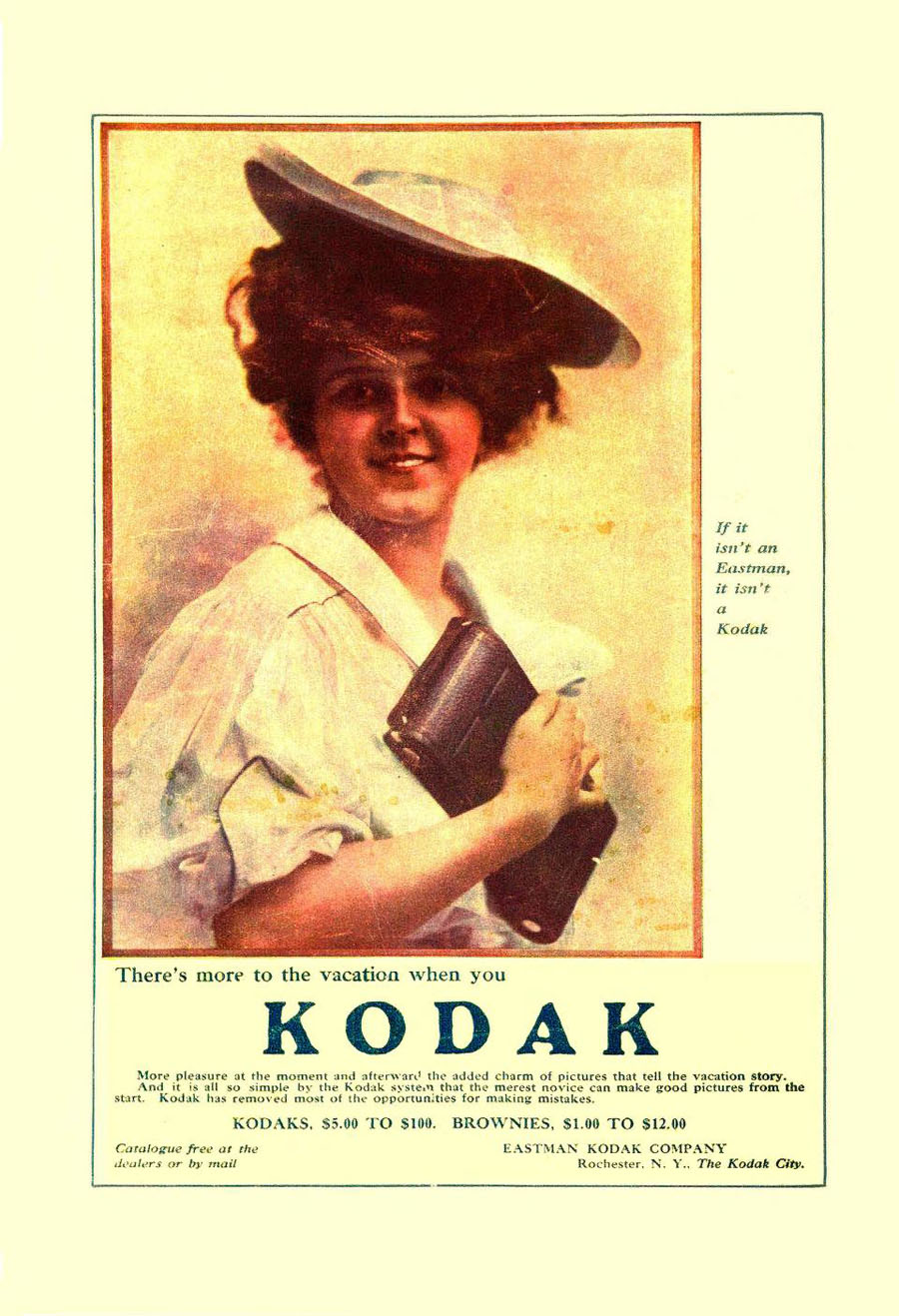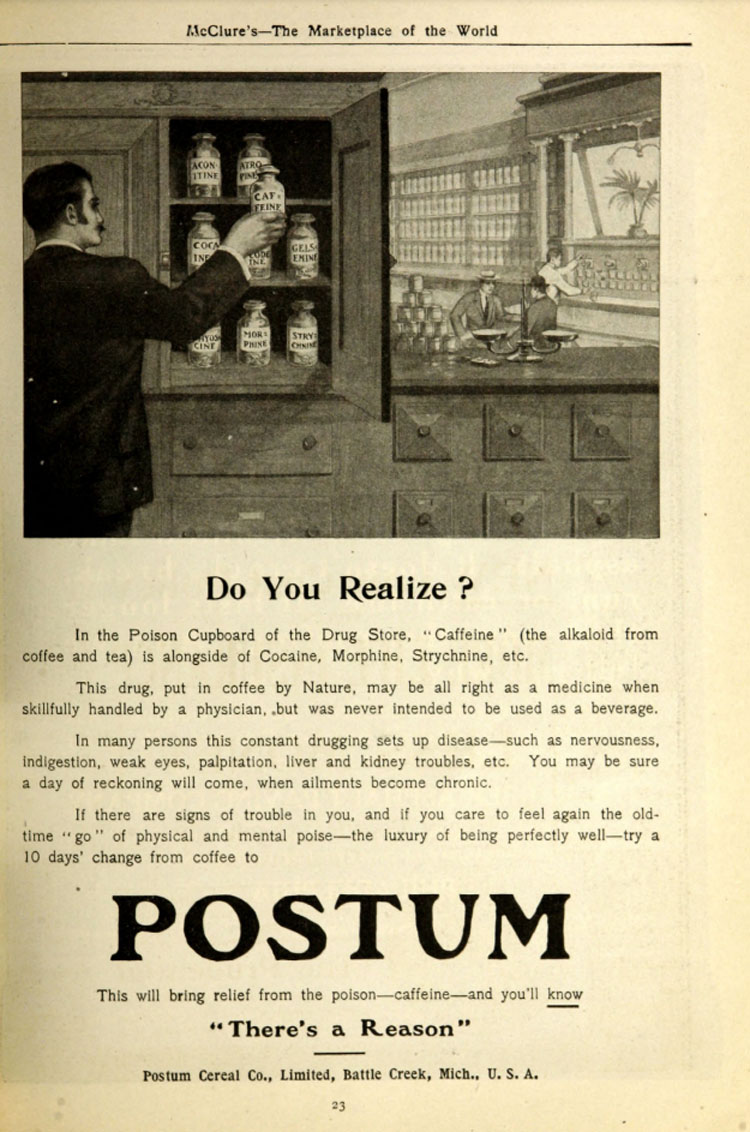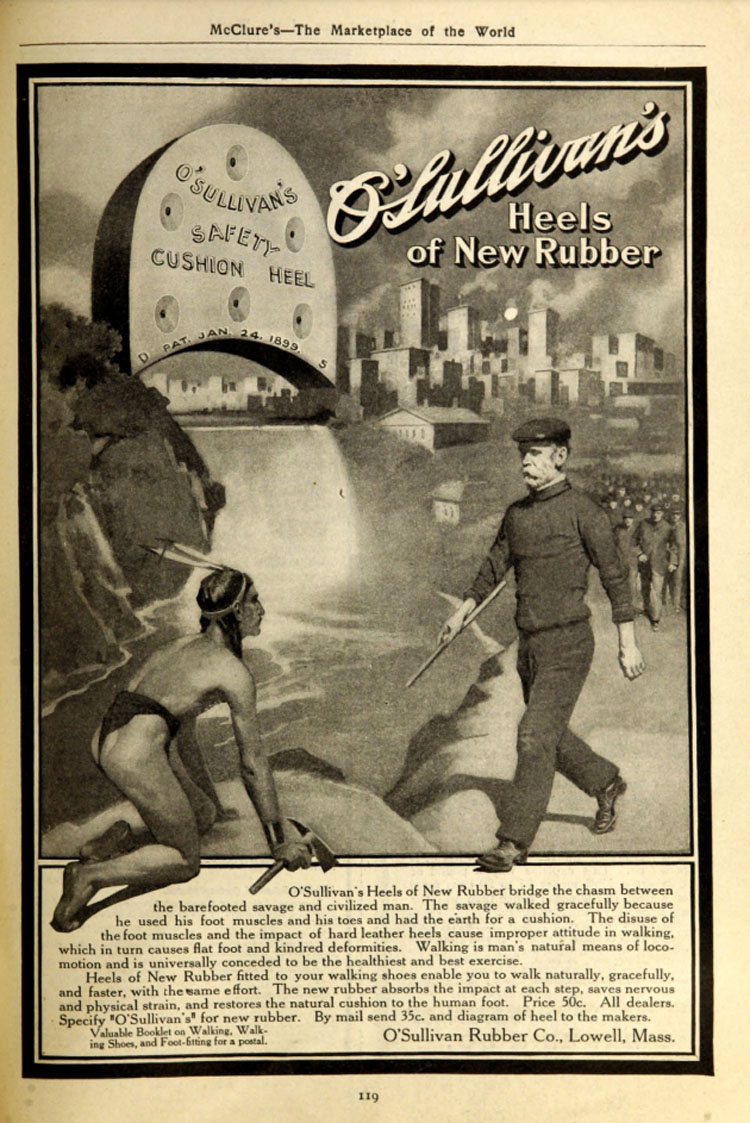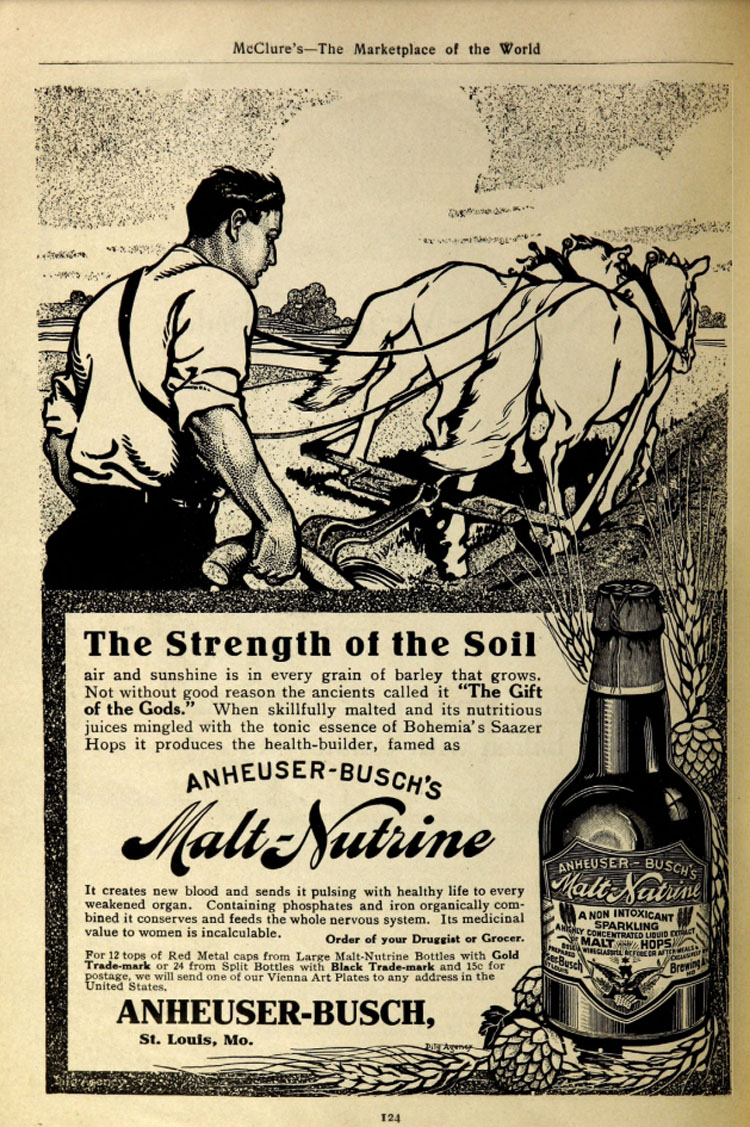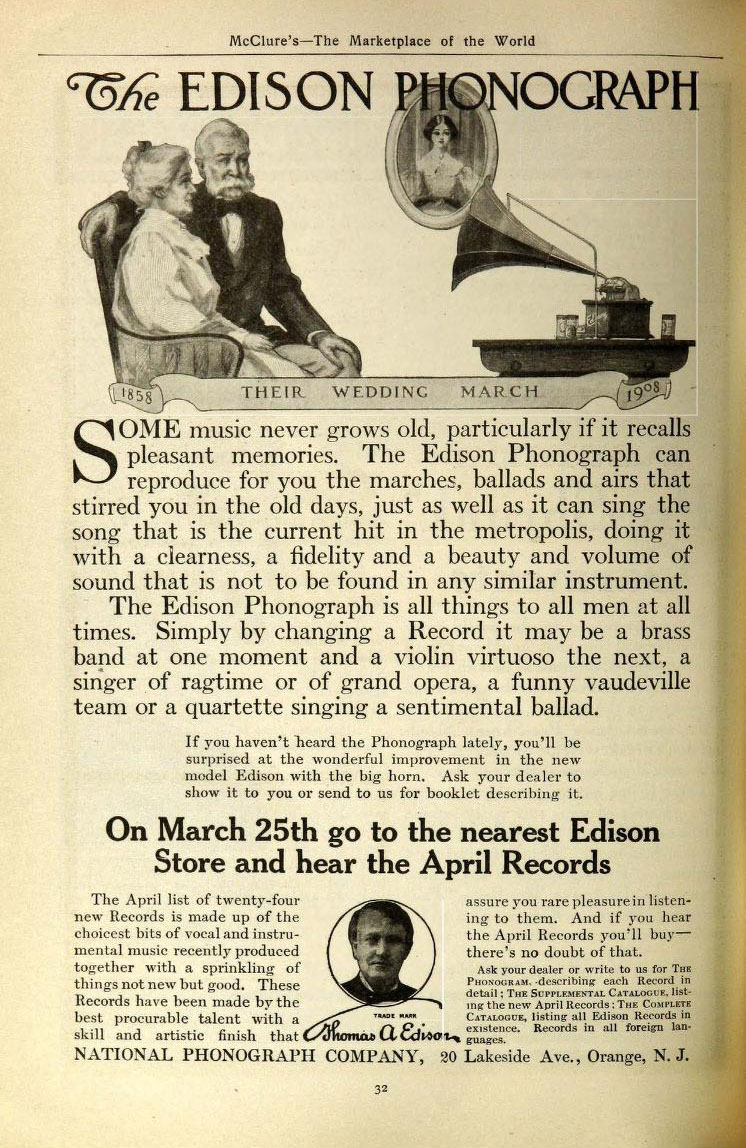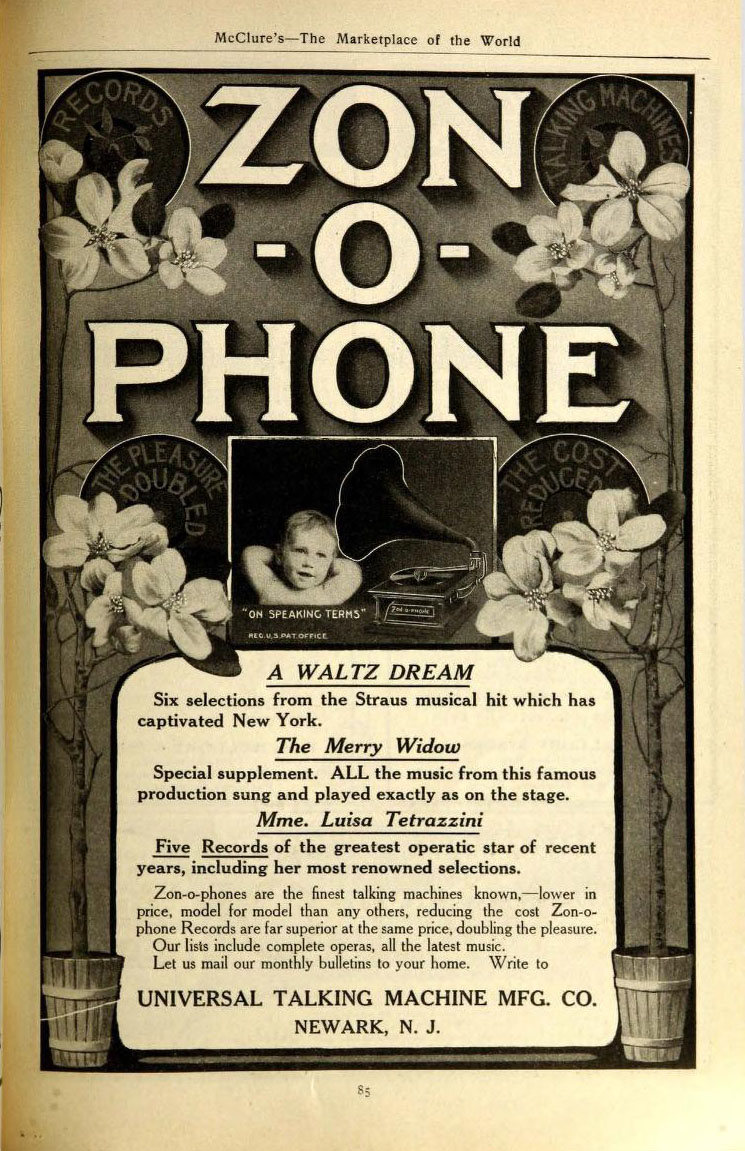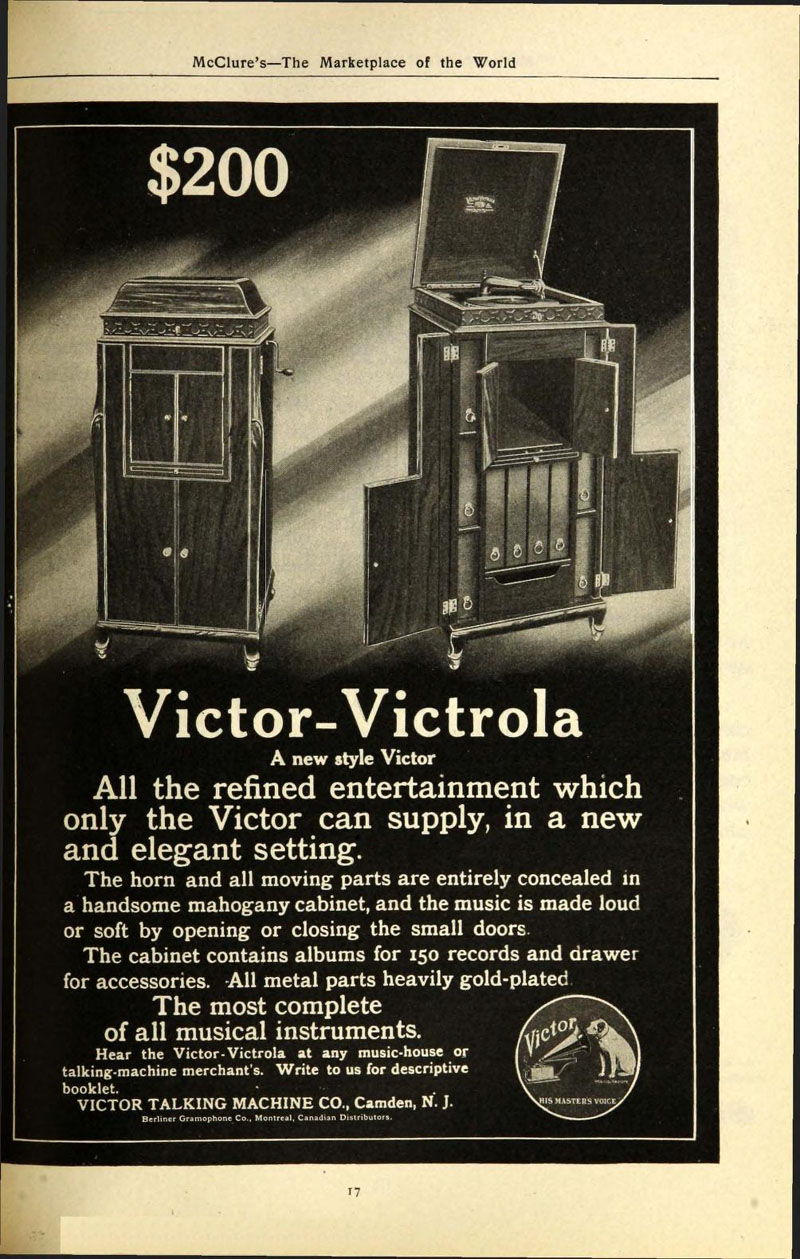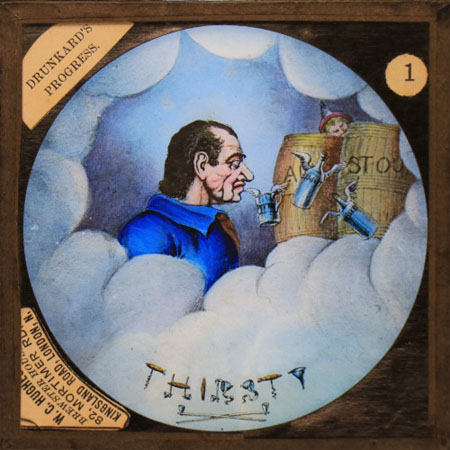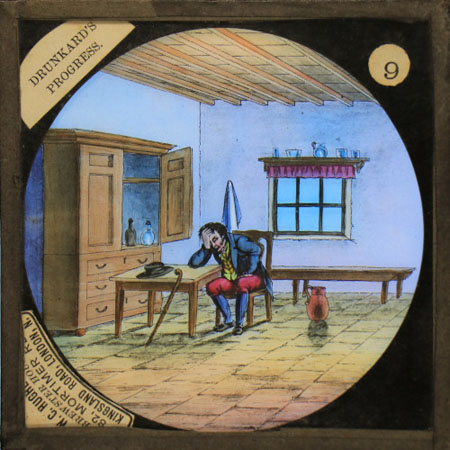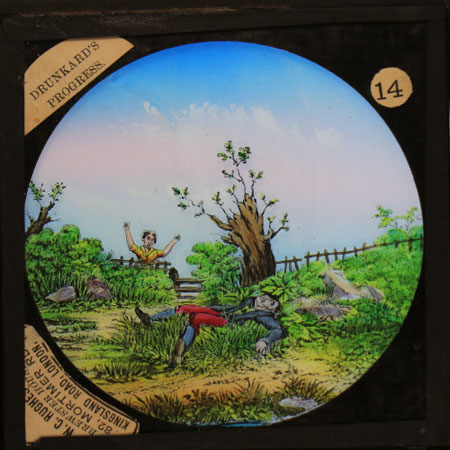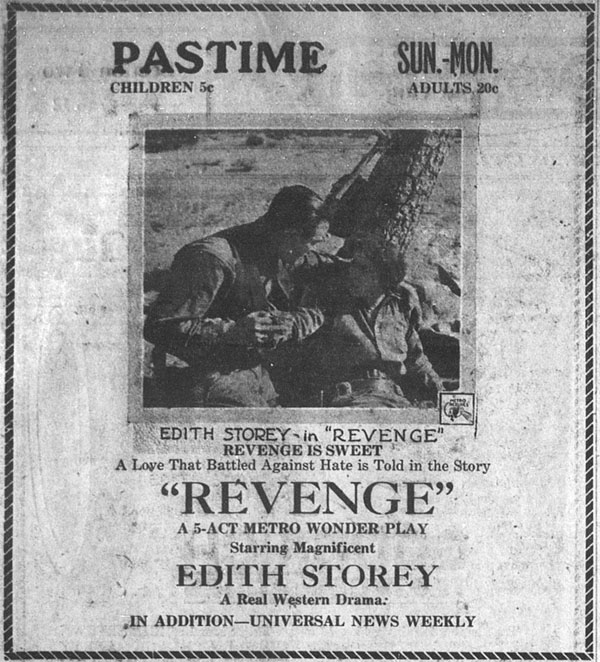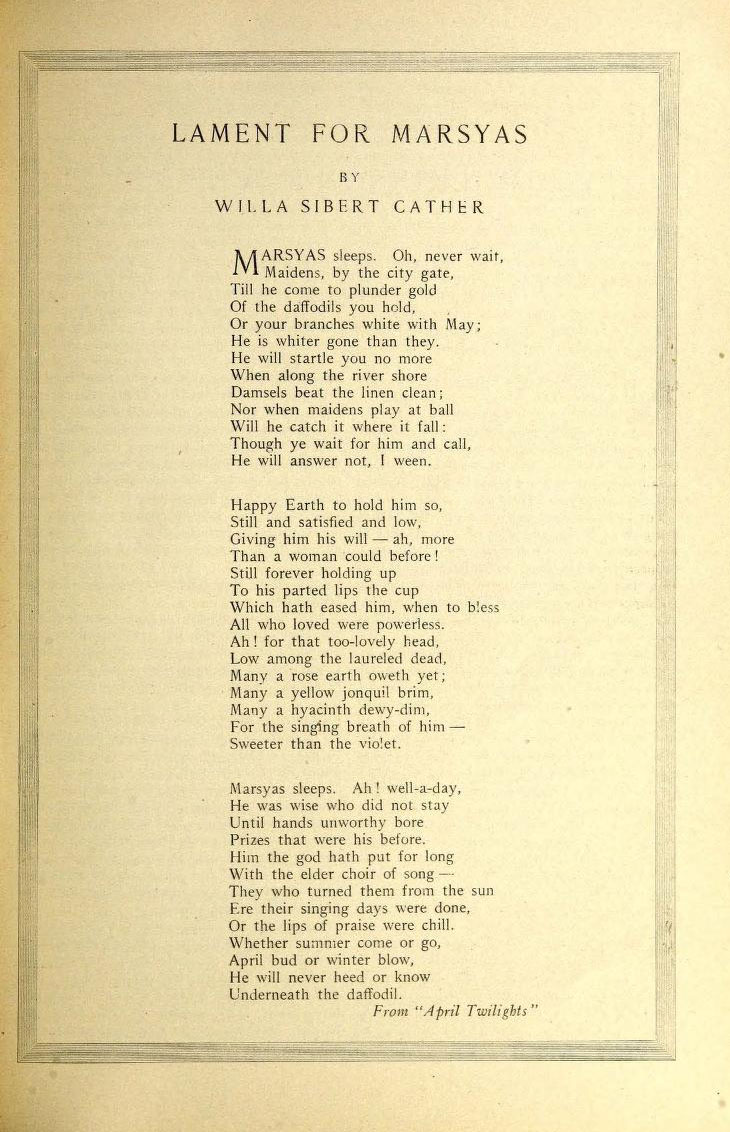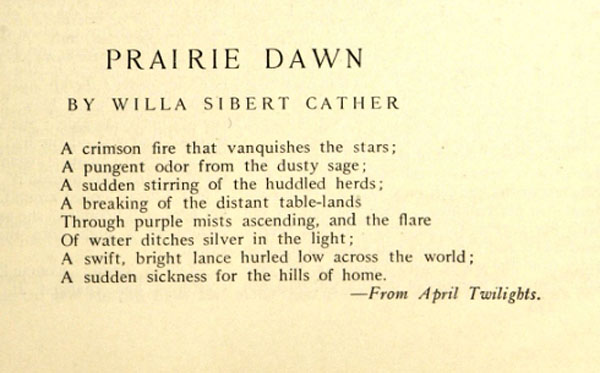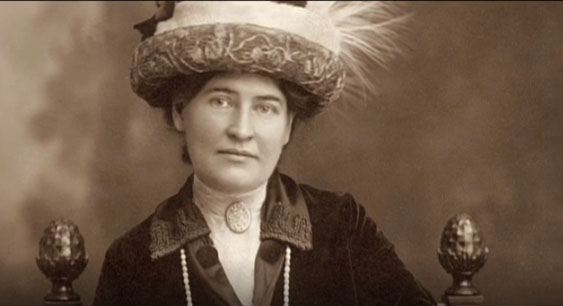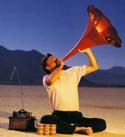|
THE MISADVENTURES OF CASSIDY By Edward S. Moffat McClure's Magazine, May 1908 - Illustrations by N.C. Wyeth
By Doug Boilesen, 2023 This story appeared in McClure's Magazine, May 1908 and is a PhonoLiterature selection with its two references to the phonograph. Both phonographs are heard in saloons in the desert town of Ochre, Nevada. Cassidy hears "Bill Bailey"
asking to please come home while in "Red Eye Mike's" saloon
after he left the first bar he had tried because it didn't have a phonograph
and he had "a craving for music."
Listen to the 2-minute Edison Gold Moulded Cylinder Record No. 8112, "Bill Bailey, Won't You Please Come Home?" sung by Arthur Collins with Orchestra, Released September 1902 (Courtesy David Giovannoni Collection, i78s.org).
Cassidy "had remained for five fateful, forgetting days" drinking at Red Eye Mike's and in the process sold his team of horses and wagon to Mike (Cassidy was a freighter "hauler"). Confused and hungover, Cassidy couldn't remember or believe that he had really sold everything. When Cassidy asked the saloon keeper how he stood "Mike laughed in his face. "You don't stand, pardner. You're all in." Some time later, Cassidy saw 'Arkinsaw' (Sam Meeker) and Con Macquire walking down the street. Cassidy knew they were both supposed to get on a train to go home, but while passing a bar Arkinsaw had convinced Con to go ahead as Arkinsaw said he had something to do, but that he would catch-up at the train. The sound of phonograph music, the distant sound of the roulette-ball and cold beer had been too tempting for Arkinsaw:
As Arkinsaw headed towards the saloon Cassidy, club in hand, stepped in front of Arkinsaw to 'convince' him to turn around and get to the train. Arkinsaw complied with Cassidy's non-negotiable request and joined Con on the train to head home, sober and his forty dollars earnings still in his pocket. A funeral, a widow, and an unusual 'marriage' ceremony in two moving wagons completed the story of Cassidy's misadventures (which can be read in full here).
"'I HEREBY PRONOUNCE YUH MAN AND WIFE!'"
"The Misadventures of Cassidy' was illustrated by N. C. Wyeth. Four illustrations from the McClure's story are included which in Project Gutenberg's McClure's Magazine eBook are shown as colored versions (whereas McClure's original illustrations were all black and white).
"FOR FOUR LONG SUMMER MONTHS OF DUST AND HEAT CASSIDY HAD BEEN A FREIGHTER."
"'I'VE SOLD THEM WHEELERS!'"
"NEAREST TO THE ROUGH PINE BOX STOOD THE WIDOW, WITH LOWERED EYES"
Popular Culture Context for April 1908, McClure's Magazine The following ads show consumer products, images and popular culture values displayed in McClure's, one of the most respected American magazines of 1908. McClures journalism has been "credited with having started the tradition of muckraking journalism (investigative, watchdog, or reform journalism), and helped direct the moral compass of the day."[2][3] (Wikipedia). McClure's advertisements, however, followed the compass of the marketplace used by the other major periodicals for directing consumers towards products.
Pear's Soap Two of the world's most useful and valued necessities to protect our women and keep them happy - (United States Naval Power and Pears' Soap).
United States Naval Power and Pears' Soap, McClure's Magazine April, 1908
Pompeian Massage Cream
Your Wife? Pompeian Massage Cream, McClure's Magazine April, 1908
Kodak
Kodak, back cover of McClure's Magazine April, 1908
Postum Cereal
"Caffeine" is poison - Postum - "This will bring relief from the poison," McClure's Magazine April, 1908
O'Sullivan's Heels of New Rubber
"O'Sullivan's Heals of New Rubber bridge the chasm between the barefooted savage and civilized man." McClure's Magazine April, 1908 - Disclaimer.
Anheuser-Busch's Malt-Nutrine
Anheuser-Busch's Malt-Nutrine - Its medicinal value to women is incalculable." McClure's Magazine April, 1908
Phonograph Ads for April 1908, McClure's Magazine
McClure's Magazine, April, 1908
McClure's Magazine, April, 1908
McClure's Magazine, April, 1908
Popular Culture's Portrayals of Drunkedness Cassidy's Misadventures seems like a story that could have been made into a western film in the era of "Broncho Billy", William S. Hart and Tom Mix cowboy movies. Moffat, in fact, did have one of his stories, Revenge, made into a 1918 American silent Western. Revenge had some drunken scenes in its film which were cut by the Chicago Board of Censors and one can wonder how the Cassidy drunkedness scenes might have been viewed by Censor Boards if it would have been made into a movie. Wikipedia's "Reception" section included the following lists of cuts required by the Chicago Board of Censors for Revenge:
Drunkedness was a subject during this time in other popular culture media such as periodicals, plays and magic lantern shows. Whatever the format the stories always had the possibility of portraying despair, destruction of the family or death if the drunkard was not able to reform. The conclusion of The Misadventures of Cassidy, however, was hopeful as the widow married Cassidy and believed in him having witnessed his intervention with Arkinsaw headed to the saloon. Perhaps that would have mitigated censorship of Cassidy's scenes of drunkedness since the contrast between Cassidy's five-day binge and his apparent turn-around was dramatic. After all, would Censors really want to diminish how far Cassidy had fallen and then risen having turned from demon drink?
1918 Newspaper ad (East Oregonian, Wikipedia)
Willa Cather and McClure's Magazine 1908 Willa Cather, one of my favorite authors, was the fiction and poetry editor at McClure's Magazine when the Misadventures of Cassidy was published in May 1908. Cather's poem "Lament for Marsyas" appeared in the February 1908 issue of McClure's and Prairie Dawn in June 1908.
McClure's Magazine, February, 1908 p.453
McClure's Magazine, June 1908
Cather became managing editor of McClure's in the fall of 1908 and continued in that role until 1912. Watch the PBS American Master's segment from the film Willa Cather: The Road Is All which explores Cather’s role as the managing editor of McClure’s magazine.
Phonographia
|
